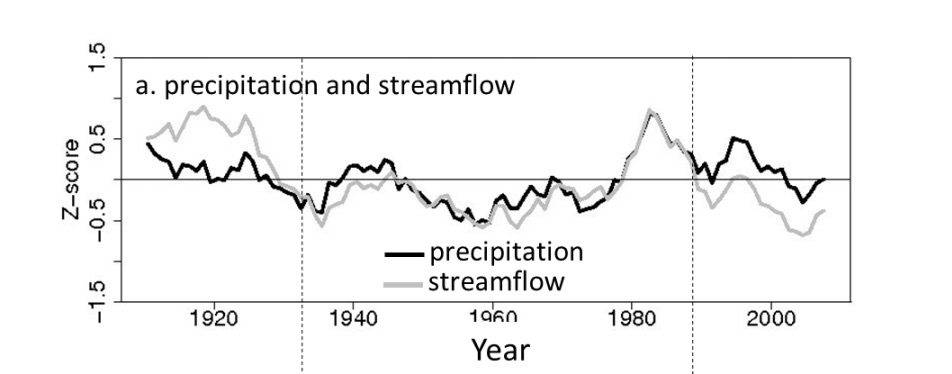Scientists for many years have projected a decline in the Colorado River’s flow as a result of a warming climate. But it’s only in the last couple of years that we’ve begun to see evidence that this is already happening.
The system has a lot of natural variability, so detecting the relatively smaller impact of warming amid the ups and downs of “did we have a lot of snow this winter or not” is hard stuff. But as the warming grows, so does the impact, and so does the detectability.
The latest, the third such effort, from the USGS’s Greg McCabe and colleagues, found a 7 percent decrease in the river’s flow in the past three decades as a result of warming temperatures.
Additionally, warm season (April through September) temperature has had a larger effect on variability in water-year UCRB streamflow than cool season (October through March) temperature. The greater contribution of warm season temperature, compared with cool season temperature, to variability of UCRB flow suggests that evaporation or snow-melt, rather than changes from snow to rain during the cool season, have driven recent reductions in UCRB flow. It is expected that as warming continues, the negative effects of temperature on water-year UCRB streamflow will become more evident and problematic.
Precipitation, primarily winter snow, remains the dominant variable influencing the Colorado River’s flow. But for a given amount of snow, we’re seeing less water in the river, a decrease in “runoff efficiency”.
The two previous papers that also showed this:
- Woodhouse et. al, Increasing influence of air temperature on upper Colorado River streamflow, 2016
- Udall and Overpeck, The twenty-first century Colorado River hot drought and implications for the future, 2017


Pingback: When people have less water, they use less water - jfleck at inkstain